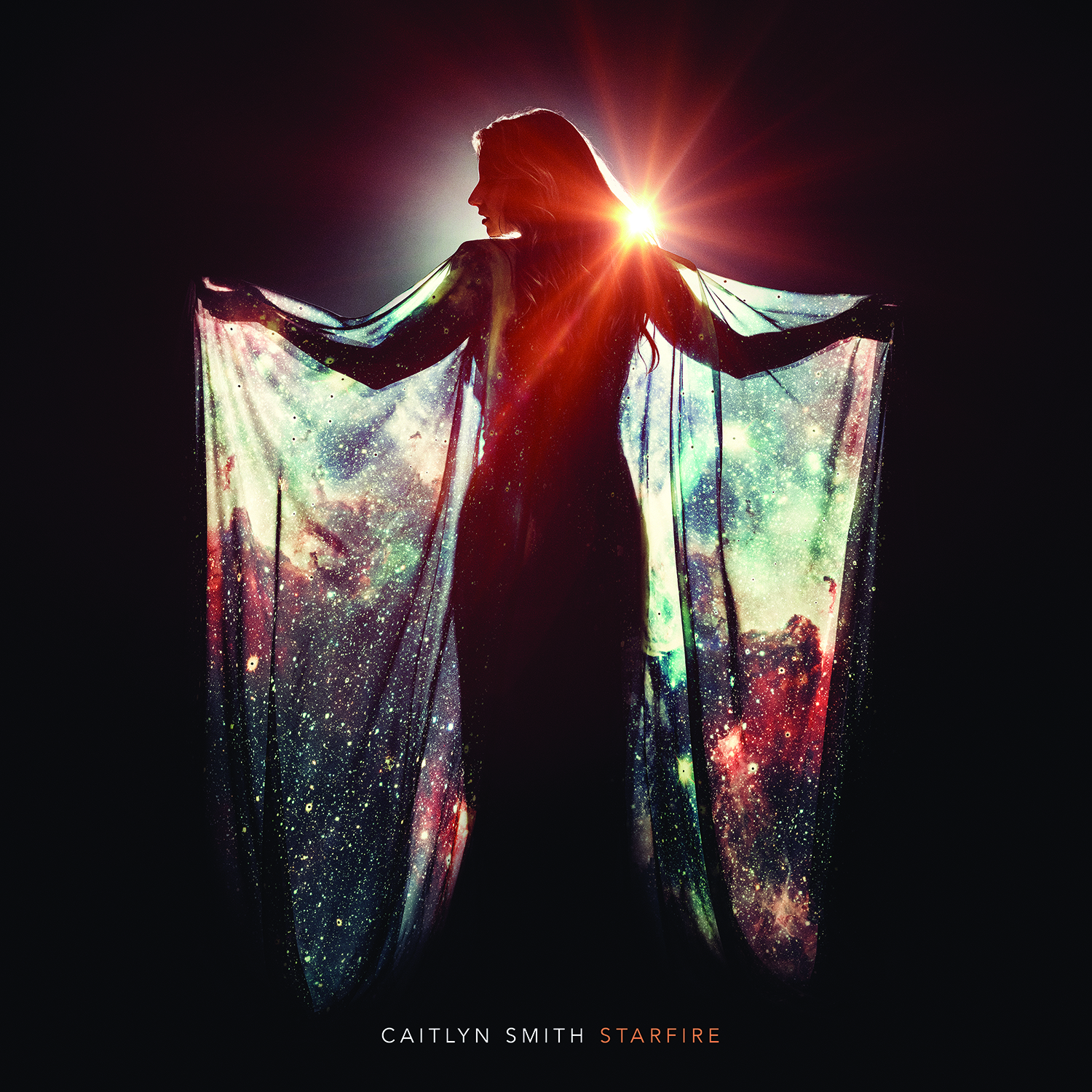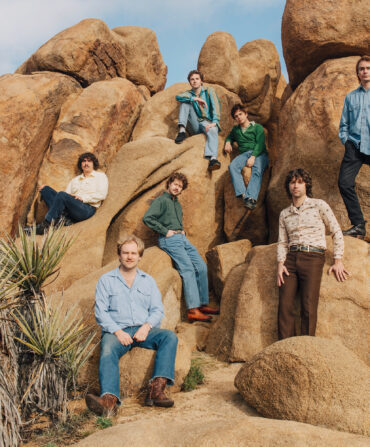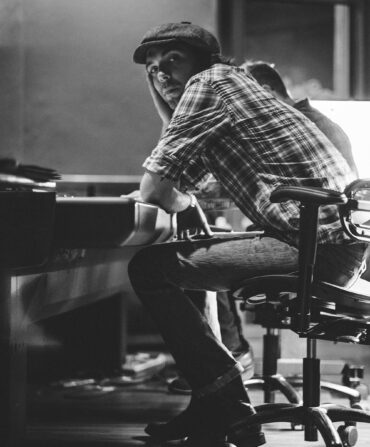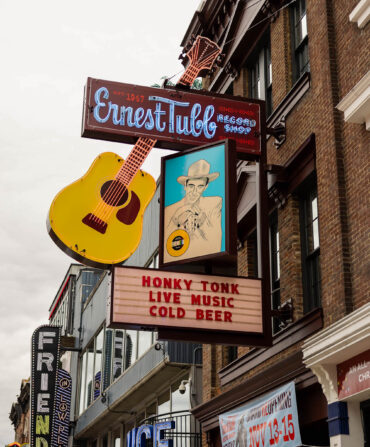Plenty of rising artists belt songs written by Dolly Parton or Garth Brooks. But how many have heard those same country greats return the favor? Caitlyn Smith, who recently celebrated the release of her new album Starfire, is one of the few. As a staff songwriter on Music Row, the Minnesota-born, Nashville-based singer has built a career by penning songs for other artists, from Meghan Trainor and John Legend’s earworm “Like I’m Gonna Lose You” to Dolly Parton and Kenny Rogers’ 2014 duet “You Can’t Make Old Friends.”

Lately, though, the spotlight is all Smith’s. Starfire, her first full-length album, showcases Smith’s range—as a singer and a songwriter—with a deft blend of catchy hooks, soaring vocal highs, and influences spanning country, pop, and blues, with many of the songs plucked from her years in Nashville’s writing rooms. Smith shows the range of her powerhouse voice on the vulnerable “House of Cards,” a song about questioning yourself that has found new meaning for Smith in the seven years since she wrote it. Garth fans may recognize “Tacoma,” an anthem about leaving behind heartbreak that appeared on Brooks’ 2014 effort Man Against Machine. But in Smith’s hands, the twang takes a backseat as the song builds from a soft beginning to a fierce, commanding chorus.
As a whole, Starfire is a compelling step forward for Smith—one that will certainly win her new listeners and further endear her to longtime fans. We caught up with her to talk about life as a songwriter, finding a home in Nashville, and how dealing with self-doubt can open doors.
How did you get started with songwriting?
I grew up in a tiny little town in Minnesota called Cannon Falls. I would sing in every coffee shop, church, county fair, Fourth of July, and dive bar within about a sixty-mile radius. I knew at a pretty young age that I loved to sing. In middle school, I put together a band. I was cold-calling venues as a twelve-year-old, writing my own songs and making my band play originals.
By the time I turned fifteen, my parents sat me down and said, “We have a college fund for you. Would you like to take it and make a record with it?” I went to Minneapolis and made a record, and sold enough to pay my parents back. I knew then that this is something I wanted to do for the rest of my life. I started going up to Minneapolis and gigging there as often as I could. If I wasn’t playing clubs, I was trying to sneak in so I could see all of the local bands.
Before Starfire, your songs were cut by other artists—many of them great songwriters themselves, like Dolly Parton. Who are some of the artists you look up to, and what makes them special to you?
Dolly is definitely one in a very long list. I adore songwriters—everyone from Carol King to Bob Dylan to Paul Simon. I connect most with artists that make me feel something—that I can see movie scenes when I hear their lyrics, that I’m moved by their melody. I connect most with artists when I can feel their guts.
This album definitely reveals some of your own guts, too. “This Town Is Killing Me” highlights some of the lows of working in the music industry. Why was it important to write that song?
This business can be really wonderful, but it also can be extremely challenging and heartbreaking. After being a staff writer for years, I began to really miss the stage. Giving up my songs [to other artists] became harder and harder. I started to march down the road of figuring out who I am as an artist. It took a lot of years and a lot of time. I made a few EPs, and I went around to every label in town. I got nothing but “No” for years and years. There were so many obstacles, but it was because of that long and winding road that Starfire was even made.
One song plenty of listeners can relate to is “House of Cards,” with its themes of self-doubt and being your own worst critic. “There’s a voice in my head/You’ve got to get better… Not good enough, good enough.” How did that song come about, and how do you deal with those kinds of feelings?
That was an old song, but it constantly kept coming up in different seasons in my life, taking on different meanings. “You’ve got to do better. It’s now or never… Shut up, Shut up. Just get out of my head.” Those lyrics were the constant narrative in my head, especially on this journey in Nashville. I had to include it on this record, and I think one of the best ways to cope with those feelings was actually making Starfire. I had tried to please everyone in Nashville, and I wanted to make this record for myself: not think about radio, not think about genre, not think about the label guy down the street—just make music that I loved. That ended up being a remedy for the struggle of trying to be someone I thought I needed to be.
Now that you’ve been in Nashville for eight years, what’s your favorite part about living there—music industry aside?
Nashville has really become home for both my husband and me. We love outside adventures, and Nashville has a ton of hiking. There are also so many new restaurants coming up, so we love to go on date nights. One of our favorite spots is to go for the afternoon is Arrington Vineyards. We’ll pack a picnic, bring some friends, and drink up some wine. That is my ideal day.
Dacey Orr Sivewright is a writer and editor based in Mount Pleasant, South Carolina. An Atlanta native, she was Garden & Gun’s digital editor from 2016 to 2021 and has spent the last decade and a half covering music, food, and culture for Billboard, The Village Voice, Stereogum, Apartment Therapy, and other outlets. When not writing, she’s probably making a mess in her kitchen or spending time outside with her husband and daughter.
Garden & Gun has affiliate partnerships and may receive a portion of sales when a reader clicks to buy a product. All products are independently selected by the G&G editorial team.








